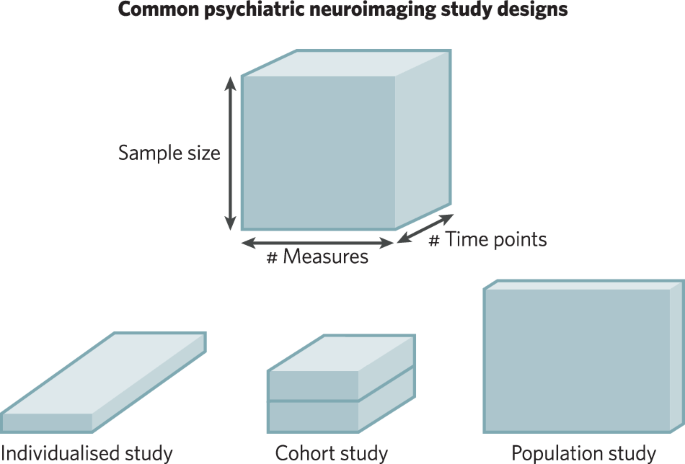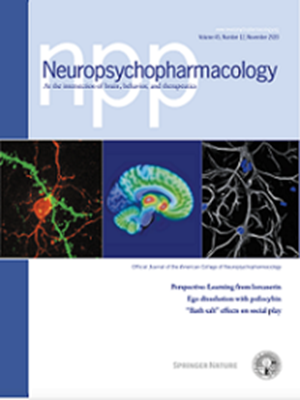Psychiatric neuroimaging designs for individualised, cohort, and population studies
IF 6.6
1区 医学
Q1 NEUROSCIENCES
引用次数: 0
Abstract
Psychiatric neuroimaging faces challenges to rigour and reproducibility that prompt reconsideration of the relative strengths and limitations of study designs. Owing to high resource demands and varying inferential goals, current designs differentially emphasise sample size, measurement breadth, and longitudinal assessments. In this overview and perspective, we provide a guide to the current landscape of psychiatric neuroimaging study designs with respect to this balance of scientific goals and resource constraints. Through a heuristic data cube contrasting key design features, we discuss a resulting trade-off among small sample, precision longitudinal studies (e.g., individualised studies and cohorts) and large sample, minimally longitudinal, population studies. Precision studies support tests of within-person mechanisms, via intervention and tracking of longitudinal course. Population studies support tests of generalisation across multifaceted individual differences. A proposed reciprocal validation model (RVM) aims to recursively leverage these complementary designs in sequence to accumulate evidence, optimise relative strengths, and build towards improved long-term clinical utility.


用于个体化、队列和人群研究的精神神经成像设计。
精神科神经影像学在严谨性和可重复性方面面临挑战,这促使人们重新考虑研究设计的相对优势和局限性。由于资源需求量大、推论目标各不相同,目前的设计在样本量、测量广度和纵向评估方面各有侧重。在这篇综述和观点中,我们针对科学目标和资源限制之间的平衡,为当前精神科神经影像学研究设计提供了指南。通过对关键设计特征进行启发式数据立方体对比,我们讨论了小样本精准纵向研究(如个体化研究和队列)与大样本最小纵向人群研究之间的权衡。精确研究支持通过干预和追踪纵向过程来检验人体内的机制。人口研究支持对多方面个体差异的普遍性进行测试。所提出的互惠验证模型(RVM)旨在依次递归地利用这些互补设计来积累证据、优化相对优势并提高长期临床效用。
本文章由计算机程序翻译,如有差异,请以英文原文为准。
求助全文
约1分钟内获得全文
求助全文
来源期刊

Neuropsychopharmacology
医学-精神病学
CiteScore
15.00
自引率
2.60%
发文量
240
审稿时长
2 months
期刊介绍:
Neuropsychopharmacology is a reputable international scientific journal that serves as the official publication of the American College of Neuropsychopharmacology (ACNP). The journal's primary focus is on research that enhances our knowledge of the brain and behavior, with a particular emphasis on the molecular, cellular, physiological, and psychological aspects of substances that affect the central nervous system (CNS). It also aims to identify new molecular targets for the development of future drugs.
The journal prioritizes original research reports, but it also welcomes mini-reviews and perspectives, which are often solicited by the editorial office. These types of articles provide valuable insights and syntheses of current research trends and future directions in the field of neuroscience and pharmacology.
 求助内容:
求助内容: 应助结果提醒方式:
应助结果提醒方式:


